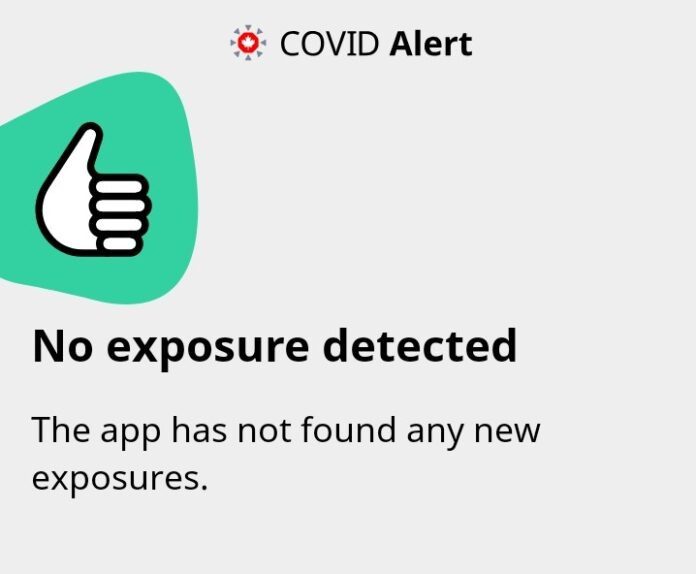(NC) Countries around the world are using apps to help limit the spread of COVID-19. While many Canadians are using Canada’s COVID Alert app, others are holding out – and it could be putting your community at risk. Here, we break down some myths that may be preventing you from downloading the app.
Does it work?
Every day, whenever it has an internet connection, your phone will get a list of random codes from people who reported a diagnosis. If it finds codes that match, the app notifies you that you may have been exposed and explains what to do next. The effectiveness of the app depends on people installing it and reporting their diagnosis if they test positive.
Is my privacy at risk?
The app was built with strong privacy protections in place from the beginning. It doesn’t use GPS or track your location, and it has no way of knowing your name or address, your phone’s contacts, your health information or the health information of anyone you’re near.
Nobody will get any information about you or the time you were near them. The app collects random unidentifiable codes that are only stored and used for the purpose of notifying you, or others, of possible COVID-19 exposure. All random codes, whether from your phone or others, are deleted after 15 days.
Can I still use my phone?
The app runs in the background and will not interrupt your activities, so you can continue to make calls, send texts and use other apps. The app simply uses Bluetooth whenever your phone has an internet connection to exchange random codes with nearby phones. It works on Apple or Android phones released within the past five years.
Do I need to take other precautions?
The app is just one part of the public health effort to limit the spread of COVID-19. Always follow all public health guidelines in your area, including wearing a mask or face covering and staying two metres apart from those outside your bubble or social circle. And remember, the app doesn’t replace medical advice. If you get sick, follow your local public health advice, contact your doctor or other health-care provider.

